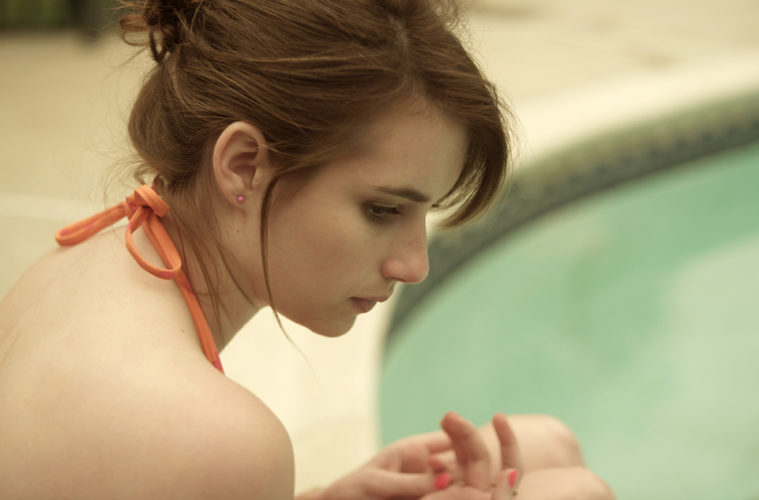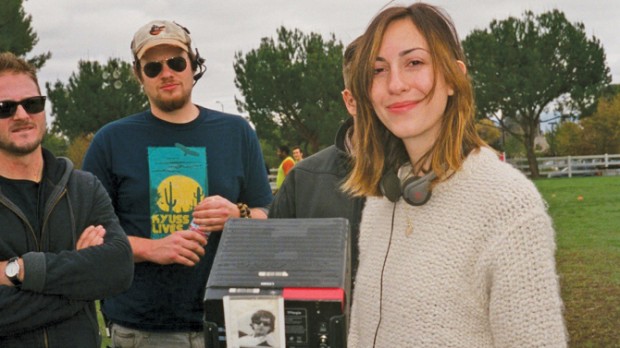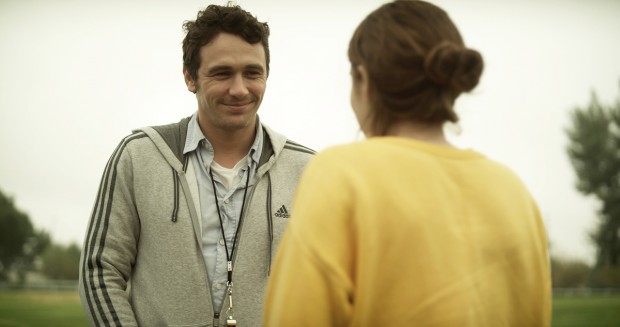
Palo Alto differs from most high school films. Not only does Gia Coppola‘s debut avoid a lot of genre trappings, but, best of all, this is a movie where kids who look like kids play the kids; nobody looks like they just graduated college here. Anyone who went to high school will recognize these characters, and not because their caricatures. It’d be hard not to find at least one person in this film you can’t relate to.
Based on a book by James Franco, who also stars, the drama relies heavily on authenticity. Coppola’s camerawork is never cold or distancing, but reserved and observant of these kids’ mundane but relate experiences — she lets the characters lead the way. It’s a promising debut for the 27-year-old, who was kind enough to make the time to discuss the film with us. Here’s what Gia Coppola had to say about Palo Alto, her background as a photographer, and the editing process:
What were your expectations going into your first feature? Were they met?
I definitely had some preconceived idea. I slowly learned a part of making a movie is so collaborative that the end result shifts into another thing and takes its own life. You have to be open to that. Granted everyone has their own style, but I felt what worked best for me was to be open to new ideas. It took a new form from what I initially planned.
What did you initially plan on?
I guess I mean more little details, but obviously all the emotions remained the same. Because of the performances the mood and tone speaks out a little bit more.
You’ve directed some fashion shorts. Did that prepare you for directing a feature?
You know, when I met James [Franco] it was about five years ago. I had just finished college and I was working as a barback in a restaurant, just trying to figure out what I wanted to do. I had sent him my photography from college, and he said I would be a good fit to make a feature film, but I hadn’t directed any short films. Well, I made one, but it was really silly and with my friends. When this opportunity came up I used these fashion films as exercises to prepare for Palo Alto, by finding a crew I enjoy working with, equipment I like, and play around with my friends as much as I can. Those were exercises to prepare.
Your background in photography shows in the film. Did your studies as a photographer influence you as a filmmaker?
Yeah, definitely. Filmmaking feels like an extension of photography, but with more components. It’s everything I enjoy in one medium. My approach to photography was taking mundane things around my world and being observant. I enjoy looking at things because you can interpret so much and get a little bit of a storyline from something small.
This is one of those high school movies where there’s no grand life lessons or big dramatic turns. Was that a part of the book’s appeal?
Definitely. Those emotions were all there in James’ book. I love the storyline between Teddy and April, where it’s this romantic tale of them not really coming together because they’re too awkward to articulate it. It’s just this long tale of them going their separate ways, but longing for each other. He writes with real honesty.
Right. These characters feel familiar, but not like caricatures. Did your own high school experience and the people you knew then influence the film?
Yeah. I was excited to show my friends the movie recently, but I think it was a little weird for them. They could see the little things I plucked from them. I definitely had those crazy friends that were always being wild, funny, and dangerous. I definitely related to some of the characters. I took things from myself to kind of figure out where these characters are coming from.
I just watched your short Writer’s Block, which is about the importance of actually going out and living life, that that’s where you get stories from. As a writer yourself, how important is it to not always be at your computer and actually go out?
[Laughs] For me, what I enjoy is being observant. I’ve been so inspired by everything, from having a beer with a friend to going to a museum. Going to movies too, of course, but just being open to the world and relaxing. You can gain so much from that.
Are you one of those writers where, at the end of the day, you scribble down what you saw or heard?
I’m still trying to figure out a good routine. I notice on my iPhone I have lots of notes, because sometimes I’ll jot down a funny idea. I think what I’m learning…I went through a lot of different phases of rewriting and rewriting, hating what I wrote and not giving my writing a chance. I feel like the best thing to do is to write a little bit each day, then not to look at it until I have a bunch of stuff. I think then you’ll have something to filter out. I guess when I take a picture I’ll take a bunch, then in the editing process I’ll finally find a good one. It’s all about the edit, which was really the approach to making the movie. We were moving so fast and trying to cover so much, but I learned the most about the film in the edit.
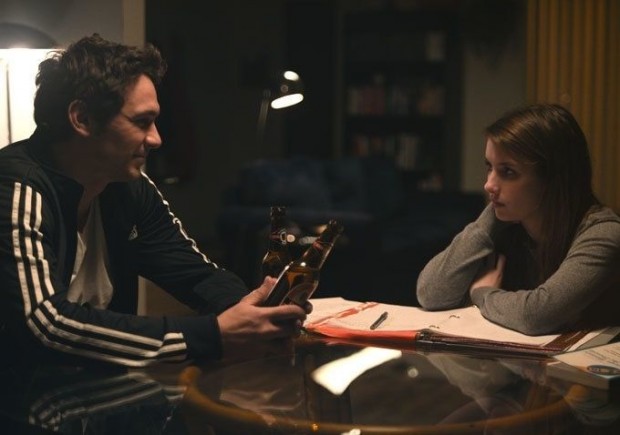
How fast did you have to move?
We were so low-budget and we were moving so fast. With kids and night exteriors and the amount of coverage we had to get in a single day, it was literally three takes at a time. That was all we could get, but it kind of worked to our advantage because we didn’t have time to overthink things. It was really just moving fast and hoping for the best [laughs]. It was a blessing in disguise.
How much room for improvisation do you leave for the actors?
I always enjoyed improvisation as long as they were getting to the end goal of the scene. I always liked it when they surprised me. They knew the characters better than I did by that point. Obviously I felt James’ dialogue was great to begin with, but there was good stuff found.
It’s nice to see a high school movie where all the kids don’t look like 20-something Hollister models. How important was it to cast real kids, or at least actors that looked like real kids?
It was super important, because that’s what I was annoyed with with movies and TV shows today. Most of the time it doesn’t feel authentic and the actors are way older than their characters. Plus, they all wear clean and sparkling converse sneakers, the skin and hair is perfect, and their style is not real. I just wanted to see something more real. A lot of the actors were going through this experience while we were making the movie, so that helped.
Working with a director, James Franco, and coming from a family of filmmakers, what was some beneficial advice you were given? And now, after having made a movie, what advice would you give?
Well, I feel like I learned a lot subliminally being on my family’s sets and watching them work. I think what’s so great about all the technology today is it’s not too expensive and we can all make a film, put it on the Internet, and let it get discovered. I’d say just get together with your friends and make stuff. Also, trust your gut instincts. I feel like when I trusted my gut instincts that’s when I made my best decisions.
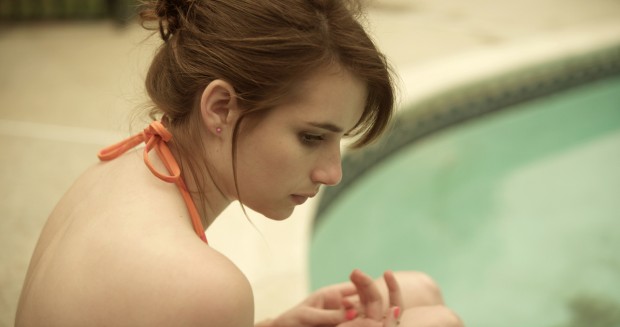
Palo Alto is now in limited release.

